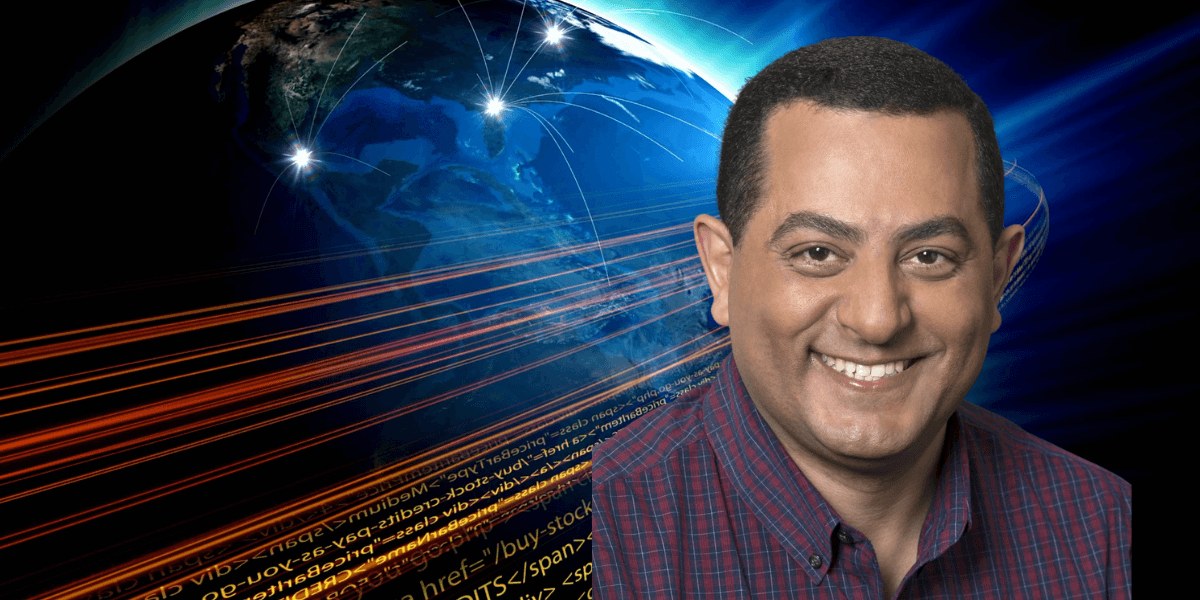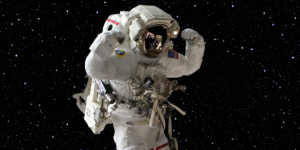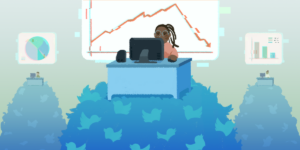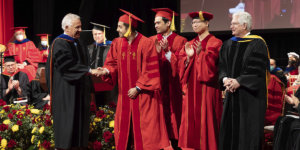
Wael AbdAlmageed
The Renaissance Weekend is not your typical conference. What started as a four-day “house party” 40 years ago turned into an ongoing tradition of interdisciplinary conversation among innovative and accomplished leaders from diverse fields. This prestigious event began in 1981, led by the former ambassador of the United States to the UK and his wife, Phil and Linda Lader. They created a space that is uniquely private and apolitical, opting for anonymous nominations of attendees and a non-partisan agenda and conversations. Scientists, politicians, lawmakers, lawyers, and entrepreneurs alike gather to engage in multidimensional discourse that remains confidential, further adding to the intrigue of the gathering. Notable previous attendees include politician Hillary Clinton, astronaut Buzz Aldrin and Nobel laureate Frances Arnold.
Among the scholars invited to the July 2022 edition of the event which took place in Banff, Alberta, Canada, was Wael AbdAlmageed, research director at the Information Sciences Institute, and USC research associate professor. He is the founding director of the Visual Intelligence and Multimedia Analytics Laboratory (VIMAL), where he conducts research on multimedia forensics and visual misinformation identification. AbdAlmageed was nominated for his notable work pertaining to misinformation and “deep fakes”, which are manipulated videos or images that utilize artificial intelligence to generate fabricated conversations, events, or identities. His influential work has been covered by a variety of media outlets, including Yahoo, Fox, Vice, Forbes, and CNN.
As a first-time attendee of the elusive Renaissance Weekend, AbdAlmageed was surprised that his presentation on the influence of misinformation on democracy and society was received with broad intrigue by his peers. He says, “I didn’t really expect that so many people would be interested in this computer science-focused topic.” AbdAlmageed’s multi-institutional research efforts in media forensics have all been in pursuit of the truth, an issue that resonated with the attendees. “I had very interesting conversations with people across the political spectrum,” he commented, “and they all agreed on the importance of fighting misinformation. Misinformation is not just a national security threat, and fighting misinformation is not just a moral imperative. I deeply believe misinformation is an existential threat and that truth is essential for democracies to thrive.” AbdAlmageed hopes his presentation will promote a broader discussion about the intersection of artificial intelligence, truth, and democracy. Humbled to be given the distinction of a nomination, he was pleased to provide visibility to his lab and USC’s Information Sciences Institute.
Published on July 14th, 2022
Last updated on July 14th, 2022












